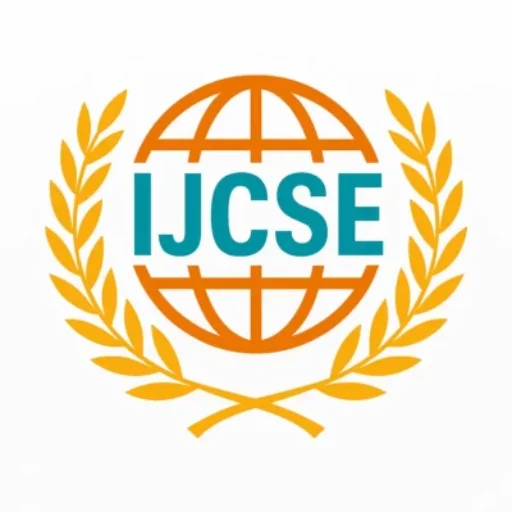
MANETs their Challenges and, Applications along with Routing Protocols Classifications | IJCSE Volume 9 – Issue 5 | IJCSE-V9I5P8

International Journal of Computer Science Engineering Techniques
ISSN: 2455-135X
Volume 9, Issue 5 | Published: September – October 2025
Author
Sakshi Rani , Lalit Garg
Table of Contents
ToggleAbstract
Decentralized wireless networks called Mobile Adhoc Networks (MANETs) are made up of mobile nodes that self-organize dynamically without the need for fixed infrastructure. Independent peer-to-peer nodes interact together with other nodes for a specific goal is the foundation of a MANET. Every device in the network plays the same job, and no previous base station or organization is specified. Since the network’s nodes are provided, there are no pre-defined roles like routers or gateways; instead, any device can function as both a node and a router simultaneously. In other words, it exhibits independent behaviour and sporadic nodal connection. Efficient routing in MANETs is a key challenge due to high node mobility, dynamic topologies, limited bandwidth, and energy constraints. This paper presents an overview of MANETs, its challenges, future trends, its applications. It also presents brief review of categorisation of routing protocols in MANETs e.g. proactive, reactive, and hybrid approaches. An alaysis is also being represented to shows the abilities, strength, weakness of the different routing protocols falling under different categories of MANET.
Keywords
MANET, DSDV, OLSR, DSR, AODV, ZRP, HWMPConclusion
Because of their dynamic and resource-constrained contexts, routing in MANETs is still a difficult issue. Reactive methods lower control burden but add delay, proactive protocols provide low latency but suffer from overhead, and hybrid protocols seek to strike a compromise between the two. Future research is moving toward intelligent, energy-efficient, and secure routing solutions that can support next-generation MANET applications in IoT, VANETs, and emergency communications.
References
1.A. Singh, V. S. Dhaka, G.Singh, “Comparative Analysis of Dynamic Path Maintenance Routing Protocols for Mobile Ad-Hoc Networks”, Indian Journal of Science and Technology, Vol 9 (28), pages 1-6, July 2016.
2.K. Sivakumar, Dr. G. Selvaraj “Overview Of Various Attacks In MANET And Countermeasures for Attacks”, International Journal of Computer Science and Management Research, Vol. 2 Issue 1 January 2013.
3.Gurpreet Singh, Dinesh Kumar, Amanpreet Kaur, “Simulation based comparison of performance metrics for various TCP extensions using NS-2”, Proceedings of IEEE sponsored International Conference on Innovative Technologies (ICIT-09), PP 106-110, 18-19 June, 2009.
4.Diaa Eldein Mustafa Ahmed and Othman O. Khalifa “A Comprehensive Classification of MANETs Routing Protocols”, International Journal of Computer Applications Technology and Research, Volume 6–Issue 3, PP 141-158, 2017
5.Aashdeep Singh, Savita Shiwani, Gurpreet Singh, “Comparing Conventional Reactive Protocols and Swarm Intelligence based Reactive Protocols in MANETs”, International Journal of Innovative Technology and Exploring Engineering (IJITEE), Volume-8 Issue-8, Pages 68-71, June, 2019.
6.Ankur Bang, Prabhakar L Ramteke, “MANET: History,Challenges And Applications”,International Journal of Application or Innovation in Engineering & Management (IJAIEM), Volume 2, Issue 9, pp 249-251, September 2013
7.Singh G., Kaur A., “Exploration of multipath routing protocol for mobile ad hoc networks”, International Journal of Sustainable Agricultural Management and Informatics, Vol. 5, No. 4, pp 249-261, 2019.
8.Alex Hinds, Michael Ngulube, Shaoying Zhu, and Hussain Al-Aqrabi, “A review of routing rotocols for mobile ad hoc networks” International Journal of Information and Education Technology, Vol. 3, No. 1, February 2013.
9.Amandeep Kaur, Gurpreet Singh, “Comparison of AOMDV, DSR and MDART Multipath Routing Protocols”, Advances in Wireless and Mobile Communications, Volume 10, Number 6, Pages 961-967, 2017.
10.Gupta R., Singh H., Singh G., “Performance Evaluation of Routing Protocols for Mobile Adhoc Networks”, International Conference on Advancements in Engineering & Technology-2017 (ICAET-2017), 24-25 March, 2017.
11.Guillen-Perez A., Montoya A.M., Sanchez-Aarnoutse J.C., Cano M.D., “A Comparative Performance Evaluation of Routing Protocols for Flying Ad-Hoc Networks in Real Conditions” Applied Science, 11, 4363, 2021
12.A. Kaur, G. Singh, R. Gupta, “Path Stability Evaluation and Controlled Broadcast Provision with A-AOMDV-CSE”, International Conference on Intelligent Communication and Computational Research (ICICCR-2020), ELSEVIER SSRN: https://ssrn.com/abstract=3565848 , page 1-9, 25th January 2020.
13.Nookala Venu , D. Yuvaraj, J. Barnabas Paul Glady, Omkar Pattnaik, Gurpreet Singh, Mahesh Singh, Amsalu Gosu Adigo, “Execution of Multitarget Node Selection Scheme for Target Position Alteration Monitoring in MANET”, Wireless Communications and Mobile Computing Vol. 2022, Article ID 2088289, pp 1-9, 08 June 2022.
14.Kaur A., Singh G., Singh, A., Gupta R., Singh G., “Ant-Based Algorithm for Routing in Mobile Ad Hoc Networks”, Lecture Notes in Networks and Systems, Springer, Vol 731, pp 357-366, 2024.
15.Ramalingam R., Muniyan R., Dumka A., Singh D.P., Mohamed H.G., Singh R., Anand D., Noya I.D., “Routing Protocol for MANET Based on QoS-Aware Service Composition with Dynamic Secured Broker Selection”. Electronics -MDPI, 11, 2637, 2022.
16.G. Singh, A. Kaur, R. Gupta, A. Singh, “Enhancing Throughput in Mobile Ad hoc Networks Through Ant Colony Optimisation Integration”, ICICC 2024, Lecture Notes in Network and Systems, Springer, Vol 1038, pp 461-470, September 2024.
17.Nurul I. Sarkar and Md Jahan Ali, “A Study of MANET Routing Protocols in Heterogeneous Networks: A Review and Performance Comparison”, Journal of Electronics – MDPI, Vol. 14 (872), PP 1-26, Feb 2025.
Journal Covers
IJCSE Important Links
© 2025 International Journal of Computer Science Engineering Techniques (IJCSE).





